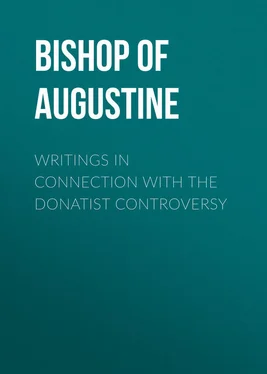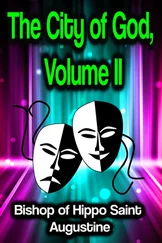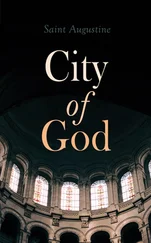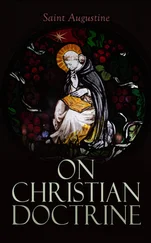Saint Augustine - Writings in Connection with the Donatist Controversy
Здесь есть возможность читать онлайн «Saint Augustine - Writings in Connection with the Donatist Controversy» — ознакомительный отрывок электронной книги совершенно бесплатно, а после прочтения отрывка купить полную версию. В некоторых случаях можно слушать аудио, скачать через торрент в формате fb2 и присутствует краткое содержание. Жанр: foreign_antique, foreign_prose, на английском языке. Описание произведения, (предисловие) а так же отзывы посетителей доступны на портале библиотеки ЛибКат.
- Название:Writings in Connection with the Donatist Controversy
- Автор:
- Жанр:
- Год:неизвестен
- ISBN:нет данных
- Рейтинг книги:3 / 5. Голосов: 1
-
Избранное:Добавить в избранное
- Отзывы:
-
Ваша оценка:
- 60
- 1
- 2
- 3
- 4
- 5
Writings in Connection with the Donatist Controversy: краткое содержание, описание и аннотация
Предлагаем к чтению аннотацию, описание, краткое содержание или предисловие (зависит от того, что написал сам автор книги «Writings in Connection with the Donatist Controversy»). Если вы не нашли необходимую информацию о книге — напишите в комментариях, мы постараемся отыскать её.
Writings in Connection with the Donatist Controversy — читать онлайн ознакомительный отрывок
Ниже представлен текст книги, разбитый по страницам. Система сохранения места последней прочитанной страницы, позволяет с удобством читать онлайн бесплатно книгу «Writings in Connection with the Donatist Controversy», без необходимости каждый раз заново искать на чём Вы остановились. Поставьте закладку, и сможете в любой момент перейти на страницу, на которой закончили чтение.
Интервал:
Закладка:
Bishop of Hippo Saint Augustine
Writings in Connection with the Donatist Controversy
PREFACE
THE schism of the Donatists, with which the treatises in the present volume are concerned, arose indirectly out of the persecution under Diocletian at the beginning of the fourth century. At that time Mensurius, bishop of Carthage, and his archdeacon Cæcilianus, had endeavoured to check the fanatical spirit in which many of the Christians courted martyrdom; and consequently, on the death of Mensurius in 311, and the elevation of Cæcilianus to the see of Carthage in his place, the opposing party, alleging that Felix, bishop of Aptunga, by whom Cæcilianus had been consecrated, had been a traditor , and that therefore his consecration was invalid, set up against him Majorinus, who was succeeded in 315 by Donatus. The party had by this time gained strength, through the professions that they made of extreme purity in the discipline which they maintained, and had gone so far, under the advice of another Donatus, bishop of Casæ Nigræ in Numidia, as to accuse Cæcilianus before the Roman Emperor Constantine, – thus setting the first precedent for referring a spiritual cause to the decision of a civil magistrate. Constantine accepted the appeal, and in 313 the matter was laid for decision before Melchiades, bishop of Rome, and three bishops of the province of Gaul. They decided in favour of the validity of the consecration of Cæcilianus; and a similar verdict was given by a council held at Arles, by direction of the Emperor, in the following year. The party of Majorinus then appealed to the personal judgment of the Emperor, which was likewise given against them, not without strong expressions of his anger at their pertinacity. This was followed by severe laws directed against their schism; but so far from crushing them, the attack seemed only to increase their enthusiasm and develope their resources. And, under the leadership of Donatus, the successor of Majorinus, their influence spread widely throughout Africa, and continued to prevail, in spite of various efforts at their forcible suppression, during the whole of the fourth century. They especially brought on themselves the vengeance of the civil powers, by the turbulence of certain fanatical ascetics who embraced their cause, and who, under the name of Circumcelliones, spread terror through the country, seeking martyrdom for themselves, and offering violence to every one who opposed them. 1 1 Aug. De Hœr. c. 69; Enarr. in Ps. 132, secs. 3, 6; C. Cresc. iii. 46, 47; C. Gaudentium i. 32.
Towards the close of the century, this schism attracted the attention of Augustine, then a priest of Hippo Regius in Numidia. The controversy seems to have had for him a special attraction, not merely because of its intrinsic importance, but also because of the field which it presented for his unrivalled powers as a dialectician. These the Donatists had recently provoked, by inconsistently receiving back into their body a deacon of Carthage named Maximianus who had separated himself from them, and by recognising as valid all baptism administered by his followers. Hence they naturally shrank from engaging in a contest with an antagonist who was sure to make the most of such a deviation from the very principles on which they based their schism; and, on the other hand, Augustine was so firmly convinced that his own position was impregnable, that he seems to have thought that if he could only secure a thorough and dispassionate discussion of the matter, the Donatists must necessarily be brought to acknowledge not only their theoretical errors, but also the practical sinfulness of their separation from the Church. Throughout the controversy, however, he appears to have put out of sight two considerations: first, the influence of party spirit and prejudice in blinding men to argument; and, secondly, the necessity of treating his opponents in a logical discussion as on an equal footing with himself. The first was in some degree an unavoidable element of disappointment; but Augustine made concession yet more difficult on the part of his opponents, by expecting them to acknowledge his superior position as a member of the Catholic Church, whose duty it was to expose the error of their views. He practically begs the very point at issue, by assuming that he, and not the Donatists, was in the Catholic communion; and though his argument is conducted independently of this premiss, yet it naturally rendered them more unwilling to admit its force.
This dogmatism was of less consequence in the first pamphlet which Augustine published on the subject, – his Alphabetical Psalm , in which he set forth the history and errors of the Donatists in a popular form, – since it was not intended as a controversial treatise, but only as a means of enlightening the less educated as to the Catholic tenets on the question in dispute. His next work, written in answer to a letter of Donatus of Carthage, in which the latter tried to prove that the baptism of Christ existed only in his communion, is unfortunately lost; and we can only gather hints as to the further part which he took in the controversy during the next few years from certain of his letters, especially those to the Donatist Bishops Honoratus and Crispinus. 2 2 Epist. xlix. li.
From the former he claims the admission that the exclusiveness of the Donatists proves that they are not the Church of Christ; and his letter to the latter contains an invitation to discuss the leading points at issue, which Crispinus seems to have declined.
In the year 400 he wrote two books Against the Party of Donatus , which are also lost; and about the same time he published his refutation of the letter of Parmenianus in answer to Tichonius, in which he handles and solves the famous question, whether, while abiding in unity in the communion of the same sacraments, the wicked pollute the good by their society. 3 3 Vol. ix p. 34, etc.
Then followed his seven books On Baptism , included in this volume, in which he shows the emptiness of the arguments of the Donatists for the repetition of baptism; and proves that so far was Cyprian from being on their side, that his letters and conduct are of the highest value as overthrowing their position, and utterly condemning their separation from the Church.
Not long after this, Petilianus, bishop of Cirta or Constantina, the most eminent theologian among the Donatist divines, wrote a letter to his clergy against the Catholics, of which Augustine managed to obtain a copy, though the Donatists used their utmost care to keep it from him; and he replied to it in two books, written at different times, – the first in the year 400, before he was in possession of the whole letter, the remainder in 402. To the first book Petilianus made an answer, of which we gather the main tenour from a third book written by Augustine in reply to it. It appears to have been full of vehement abuse, and to have assumed the question in dispute, that the existence of the true Church, and the catholicity of any branch of it, depended on the purity and orthodoxy of all its ministers; so that the guilt or heresy of any minister would invalidate the whole of his ministerial acts. Hence he argued that Cæcilianus being the spiritual father of the so-called Catholics, and having been a traditor , none of them could possibly have been lawfully baptized, much less rightfully ordained.
Augustine admits neither of his assumptions; but, leaving the guilt or innocence of Cæcilianus as a point which was irrelevant (though practically the case against him utterly broke down), he addresses himself to the other point, and argues most conclusively that all the functions of the clergy in celebrating the rites of the Church being purely ministerial, the efficacy of those rites could in no way depend upon the excellence of the individual minister, but was derived entirely from Christ. Hence there was a certainty of the grace bestowed through the several ordinances, which otherwise there could not possibly have been, had their virtue depended on the character of any man, in whom even an unblemished reputation might have been the fruit of a skilled hypocrisy.
Читать дальшеИнтервал:
Закладка:
Похожие книги на «Writings in Connection with the Donatist Controversy»
Представляем Вашему вниманию похожие книги на «Writings in Connection with the Donatist Controversy» списком для выбора. Мы отобрали схожую по названию и смыслу литературу в надежде предоставить читателям больше вариантов отыскать новые, интересные, ещё непрочитанные произведения.
Обсуждение, отзывы о книге «Writings in Connection with the Donatist Controversy» и просто собственные мнения читателей. Оставьте ваши комментарии, напишите, что Вы думаете о произведении, его смысле или главных героях. Укажите что конкретно понравилось, а что нет, и почему Вы так считаете.












